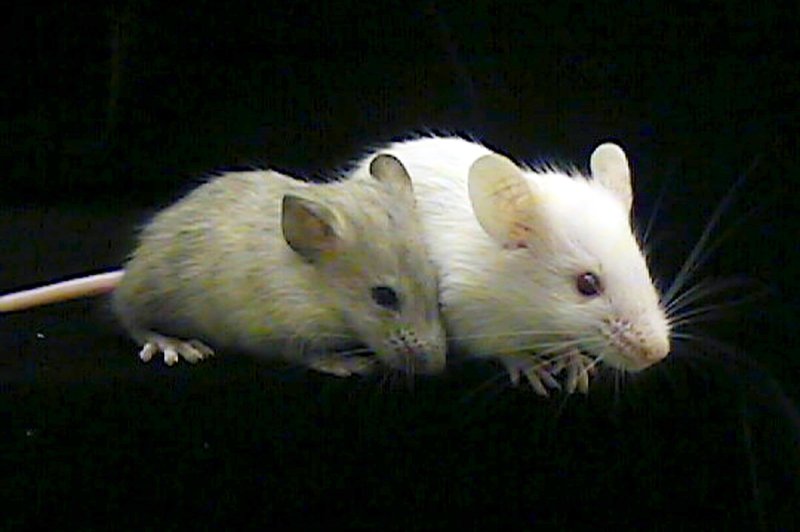Scientists trained lab mice to associate a specific sound with either a punishment or a reward. Photo by rw/HO/Carolyn Cronin/UPI |
License Photo
Dec. 5 (UPI) -- Scientists have managed to measure the neural response to scary sounds, offering new insights into how the brain is affected by fear.
When sensory inputs are processed by the brain, some are encoded in longterm memory banks. Often, these memories are linked with positive or negative experiences.
Animals, like mice, for example, can be trained to associate certain sounds with a reward.
"If you look at the patterns of brain cell activity in the amygdala, you can know whether the animal is expecting a reward or fearing a punishment," Bo Li, researcher at Cold Spring Harbor Laboratory, said in a news release.
When this amygdala-based learning process malfunctions, anxiety disorders and depression can develop.
To better understand how the system works, scientists trained mice to associate a specific sound with either a reward or punishment. The ward was a sip of water, while the punishment was an irksome puff of air.
Brain imaging technology allowed scientists to track neural responses to the tonal trigger.
In the beginning, the sound triggered neurons to fire randomly, but once an association was formed, researchers were able to recognize a pattern in the way neurons fired. The pattern was similar to the neural pattern triggered by the actual punishment.
For mice that received a reward, the neural response to the tone followed a pattern similar to the pattern triggered by the experience of receiving a sip of water.
Eventually, the tone triggered an actualized response. Fearful mice blinked in anticipation of the air puff, while excited mice licked their lips.
Researchers shared the results of their experiments this wee in the journal Nature Communications.
In followup tests, researchers reversed the associations for each group of mice. When rewarded mice began to receive a puff of air, their positive association with the tone was eventually broken. The same reversal occurred for mice with a fearful association with the sonic trigger.
"We think this is how sound acquires meaning," Li said.















